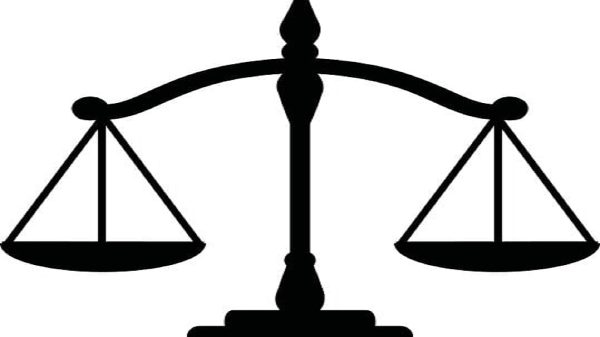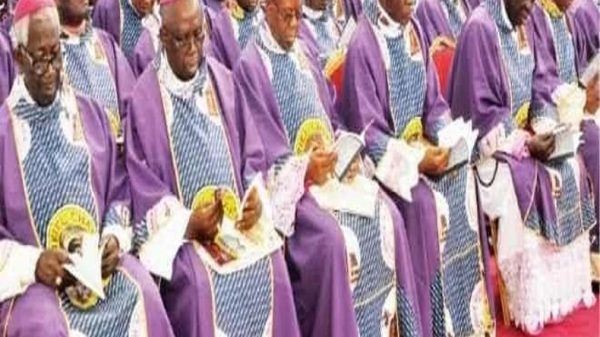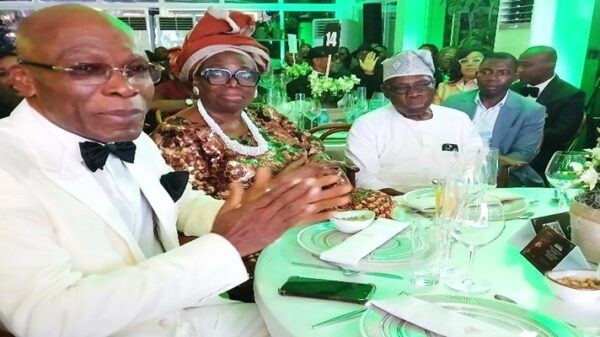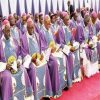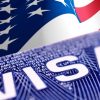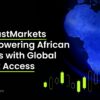The UK Government has pledged to support Nigeria in its inclusive digital economic agenda to promote the growth of the Nigeria tech ecosystem and close the digital divide in Nigeria.
They made this commitment on Thursday, during a ‘Technical Conference on Digital Inclusion for Underserved/Unserved Communities and Persons Living with Disabilities (PLWDs)’, facilitated the UK’s Digital Access Programme in collaboration with the Federal Ministry of Communications and Digital Economy and the Nigerian Communications Commission (NCC).
The Conference was mainly organised as a catalyst to aggregate views and develop quick-win strategies to resolve the issues of populations without access to digital; in order to bring poor and excluded people into the digital economy, reducing poverty and stimulating economic growth.
The UK has continued to place the development and adoption of digital inclusion at the very heart of its agenda to be a global force for good. The UK recognises the power of the digital economy to deliver on the Sustainability Development Goals (SDGs).
The virtual conference in collaboration with all levels of Government, Private Sector Partners, Civil Society Organisations, and the International Development Community is the critical first step to promote the need for affordable, inclusive, safe and secure digital access for underserved or excluded populations,
A technical report presented at the conference highlights demand, supply and systematic issues which currently hinder digital inclusion efforts. The reports by experts also proffers detailed solutions to the issues raised from short, medium to long term.
As our fight against the pandemic goes on, stakeholders, Nigerian authorities and the international development community are urged to focus on supporting a sustainable and resilient economic recovery across Nigeria and that includes deepening digital inclusion to rural communities, PLWDs and the most vulnerable in the society.
Delivering the opening remarks, the British Deputy High Commissioner to Nigeria in Lagos, Ben Llewellyn-Jones, said: “As our fight against the pandemic goes on, our focus is on supporting a sustainable and resilient recovery across Nigeria.
“Tech has the ability to help us tackle some of the greatest social challenges of our time – from protecting our environment and reducing carbon emissions, to transforming health systems, saving lives through diagnosing diseases earlier, to aiding economic inclusion by deepening access to underserved populations.
“To drive this growth, Nigeria needs a combination of increased access to faster and better quality Internet connectivity infrastructure, an upskilled tech talent pool, a vibrant start-up ecosystem, access to investment and partnership opportunities both regionally and internationally.”
Dr. Isah Ali Ibrahim (Pantami), Minister of Communications and Digital Economy, delivering a keynote address entitled ‘Optimizing and Prioritizing Digital Inclusion In The Face of Covid-19’, said: “The Federal Government’s priority is developing strategy and policy to provide an enabling environment which supports the private sector to bridge the digital divide.
“We are supporting the growth of the sector which contributed 14.70% in to the GDP in Q4 of 2020 and will continue to do so.
“On-behalf of President Buhari, I want to thank the UK Government for their continued support for Nigeria’s digital sector including the development of the national broadband plan which has led to 10% increase in broadband penetration in Nigeria since it was launched a year ago.”
Reacting to the technical study, Prof Umar Garba Danbatta, executive vice chairman of the Nigeria Communications Commission, also thanked the UK Government’s Digital Access Programme for their support in championing digital inclusion in Nigeria:
According to him, “Previously there were about 200 clusters where there are digital access gaps, this means that 40 million Nigerians do not have access to telecommunications or internet services.
“On the part of the NCC, we are working on cutting down these clusters. As of today, we have cut these clusters down to 114 and reduce the population size by 10 million.
“I appreciate the efforts of the UK government through their Digital Access Programme on coming up with this diagnostic study on identifying the gaps to access as they exist today.”
Alessandra Lustrati, FCDO’s Head of Digital Development and Global SRO of the Digital Access Programme, said: “This Project provides empirical evidence to demonstrate that despite progress made, a huge digital gap exists between unserved and underserved communities and PLWDs, on one hand, and the rest of the society, on the other hand but more importantly, it has also recommended possible solutions.
“The project stresses the point that digital inclusion is now vital and urgent. We welcome the adoption of these recommendations as an important stepping stone in the creation of policy and the implementation of interventions to bridge the digital divide in Nigeria and we look forward to the implementation of these recommendations.”
![]()

